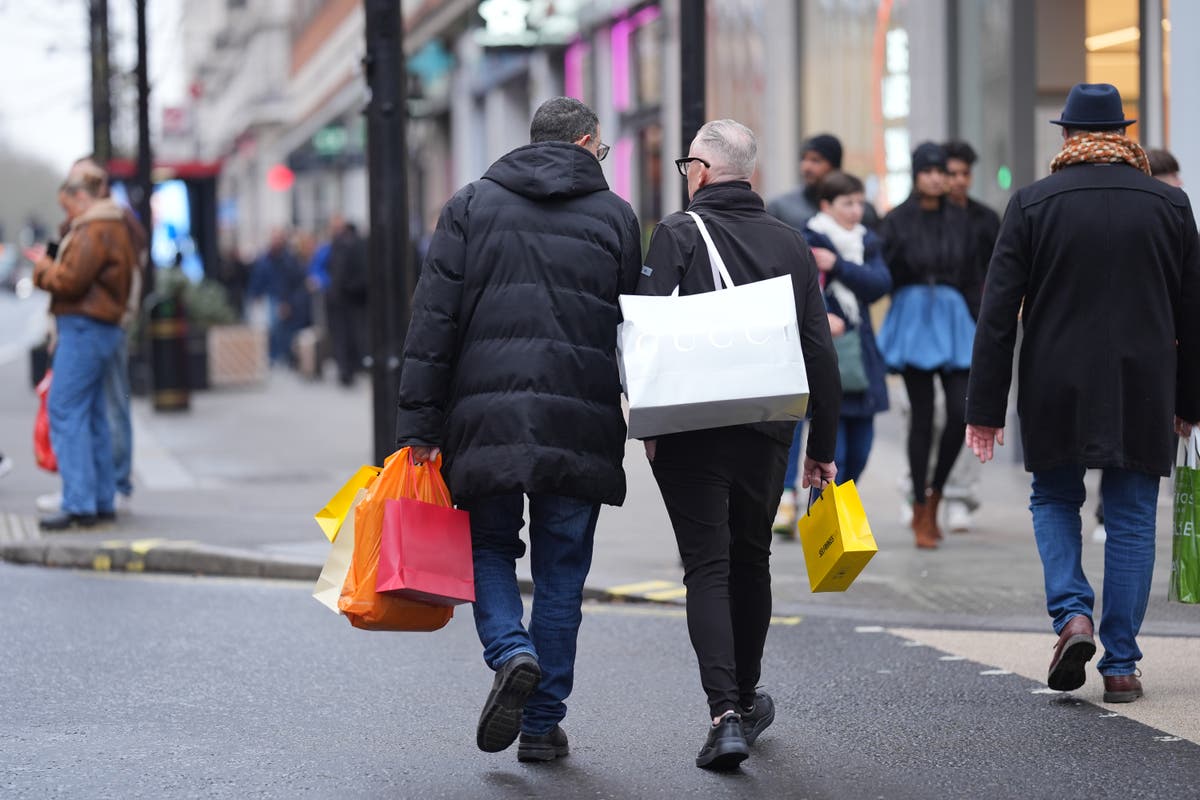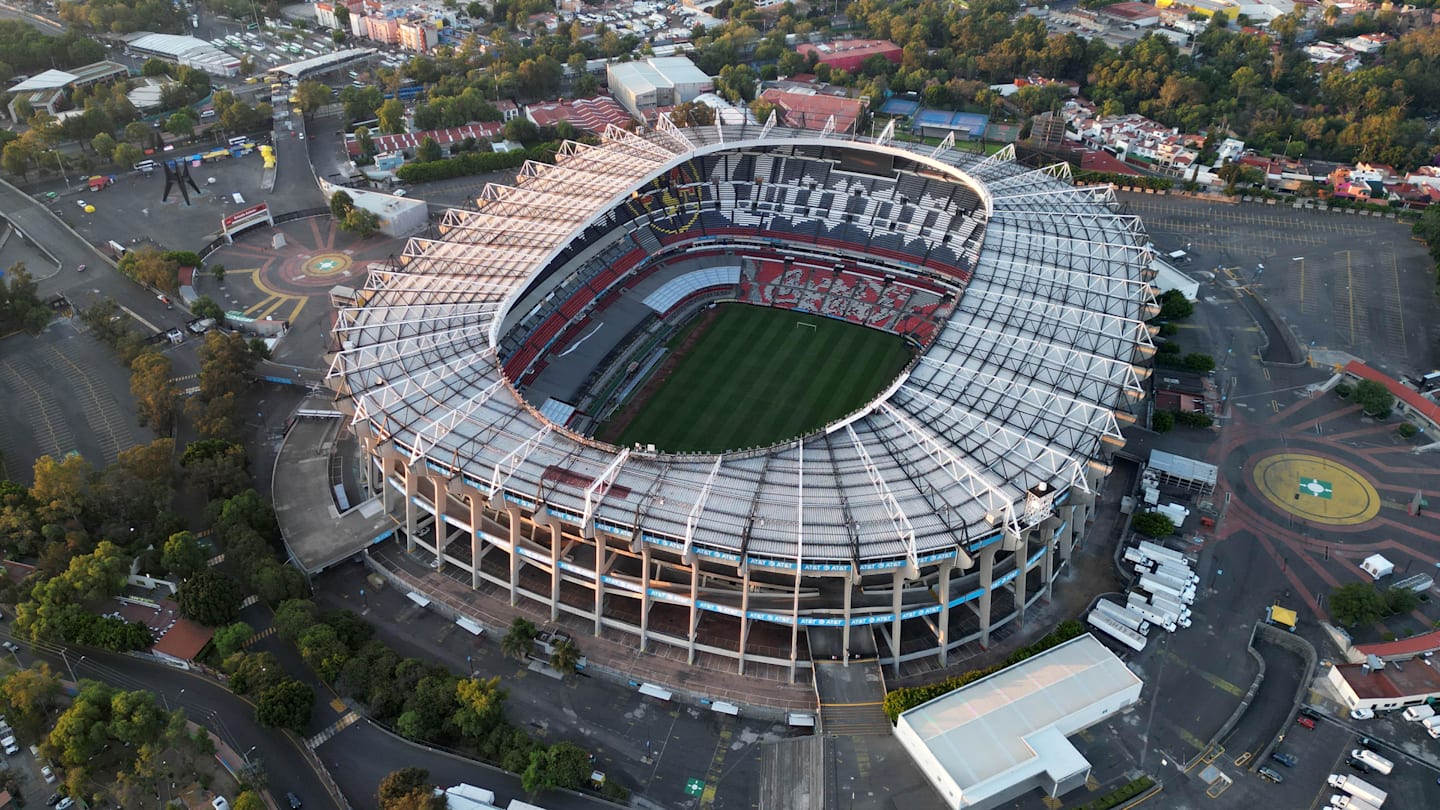Fitness
Female Fight Club: Bronx women unite for fitness and domestic violence awareness – Bronx Times

More than a dozen Bronx women came together Wednesday and worked out at the all-female gym and health club Female Fight Club NYC.
The club, located in Riverdale, offers much more than just fitness classes; it’s a safe space for women in the Bronx to strengthen their spirit as well as their muscles. After a high-intensity fitness class, the group of women gathered near the front of the studio for the real fight—the fight to end domestic violence (DV) in the Bronx.
Part-gym, part-community support, Female Fight Club NYC hosted a seminar to raise awareness about domestic violence where advocates, law makers, and survivors spoke about the signs of DV and offered information about resources for people who want to leave a violent home.
The event came at the beginning of national Domestic Violence Awareness Month. All through October the city and advocacy organizations will hold events to raise awareness about domestic violence, elevate the voices of survivors and connect people with help.
Belqui Rodriguez, a domestic violence advocate at My Sister’s Place – a nonprofit organization seeking to end DV in nearby Westchester County – talked about some common misconceptions about abuse at the hands of a spouse, partner or family member.
“I know a lot of people might think that it’s just about you getting a black and blue or a broken arm, a broken nose or a finger,” Rodriguez said. “Domestic violence goes beyond that; it’s a monster in disguise. It is verbal, it is emotional, it is physical, it is labor, it is financial.”
Domestic violence prevention is one of the issues that Female Fight Club founder Johanna Edmondson champions as part of a holistic approach to women’s health. She started Female Fight club during the pandemic, wanting to create a safe environment and supportive community for women to exercise and prioritize self-care. The gym offers fitness classes from Zumba and Pilates, to kickboxing and weight training. During the pandemic, domestic violence rates rose globally, according to UN Women.
“People were trapped inside with their abusers without a lifeline,” Edmonson said.
Now, Female Fight Club and its non-profit arm, The Female Fight Club Foundation, host workshops and awareness events that educate women in the Bronx about domestic violence and connect them to services like My Sister’s Place.
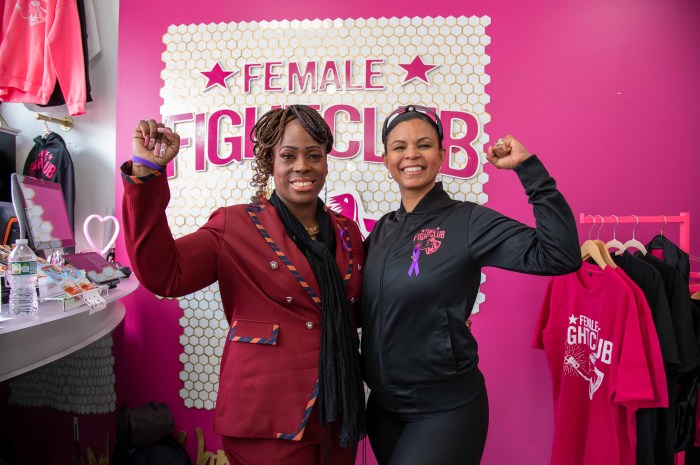
The Bronx leads the city in DV complaints, yet survivors in the borough access fewer resources like mental health services and economic empowerment services than in the other four boroughs, according to city data.
My Sister’s Place was there to help Chrissy Monroe nearly a decade ago, when she was in an abusive relationship. The reality TV star and entrepreneur said that domestic abuse can happen to anyone.
“At the time, I was on Love and Hip Hop New York season five, one of the world’s largest TV shows. I was on top of the world when I left that season,” Monroe said.
She described falling for a younger man who was handsome and charming. He had recently been paroled on a drug charge and moved in with her. Things didn’t become violent right away. Monroe said the abuse was more subtle at first like, ignoring her, being cold or putting her down and making her feel unattractive. Ultimately, things escalated one day while the two were driving down the Major Deegan Expressway.
“I think I changed the radio station to a song he liked or something, and he just, boom, punched me in my face so hard, like I have never been punched before,” Monroe said. “Blood just started squirting all over the steering wheel, all over the car.”
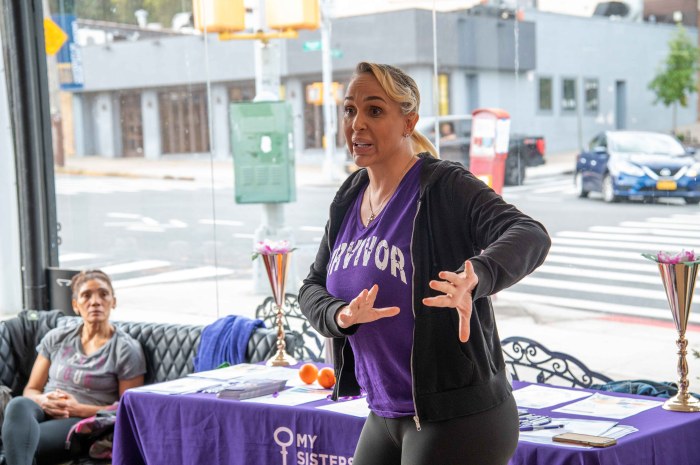
The abuse got worse, leaving Monroe with black eyes, cracked ribs and permanent hearing loss in her left ear. The violence only stopped when he committed a robbery and went back to prison. But Monroe’s nightmare didn’t end there. Once she got the courage to press charges, Monroe said she was shamed and blamed by police.
“It was like, ‘Oh, why didn’t you come sooner?’” Monroe said. “That whole attitude, which now I know is victim blaming. I didn’t know that at the time. I was feeling dumb for not coming sooner. It was making it worse.”
Monroe’s abuser was sentenced to three months in prison, time that ran concurrent with his other charges.
“He didn’t get one extra minute for what he did to me, and they acted like they were doing me a favor at the court,” she said.
Monroe’s experience is not unique. Many survivors of domestic violence experience a stigma that shifts the blame from the abuser to the survivor. The stigmatization of domestic violence survivors as defenseless or weak or that they did something to cause the abuse creates barriers to seeking help
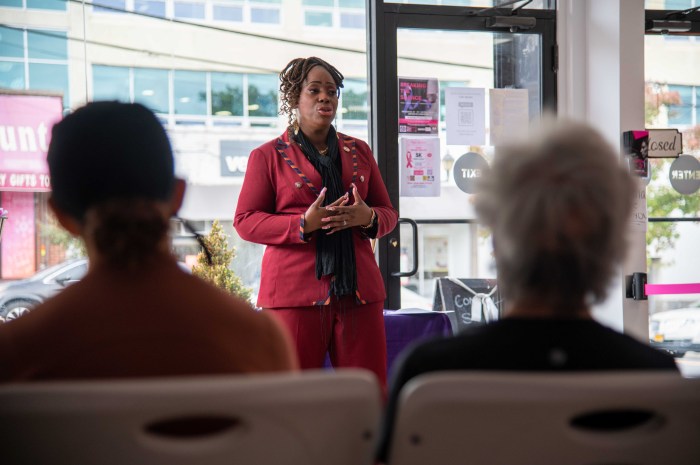
Bronx Borough President Vanessa L. Gibson, who was in attendance, declared domestic violence a public health crisis in the Bronx, noting that the Bronx leads the city in DV related homicides. She encouraged bystanders to speak up and say something when they see something even if they are hesitant about coming forward.
“I get it,” Gibson said. “No one wants to testify at a trial. But I also say, that is someone’s mother, someone’s sister, someone’s niece. That is someone who is loved by someone, and you have to care enough, because it could easily be you or one of your loved ones.”






